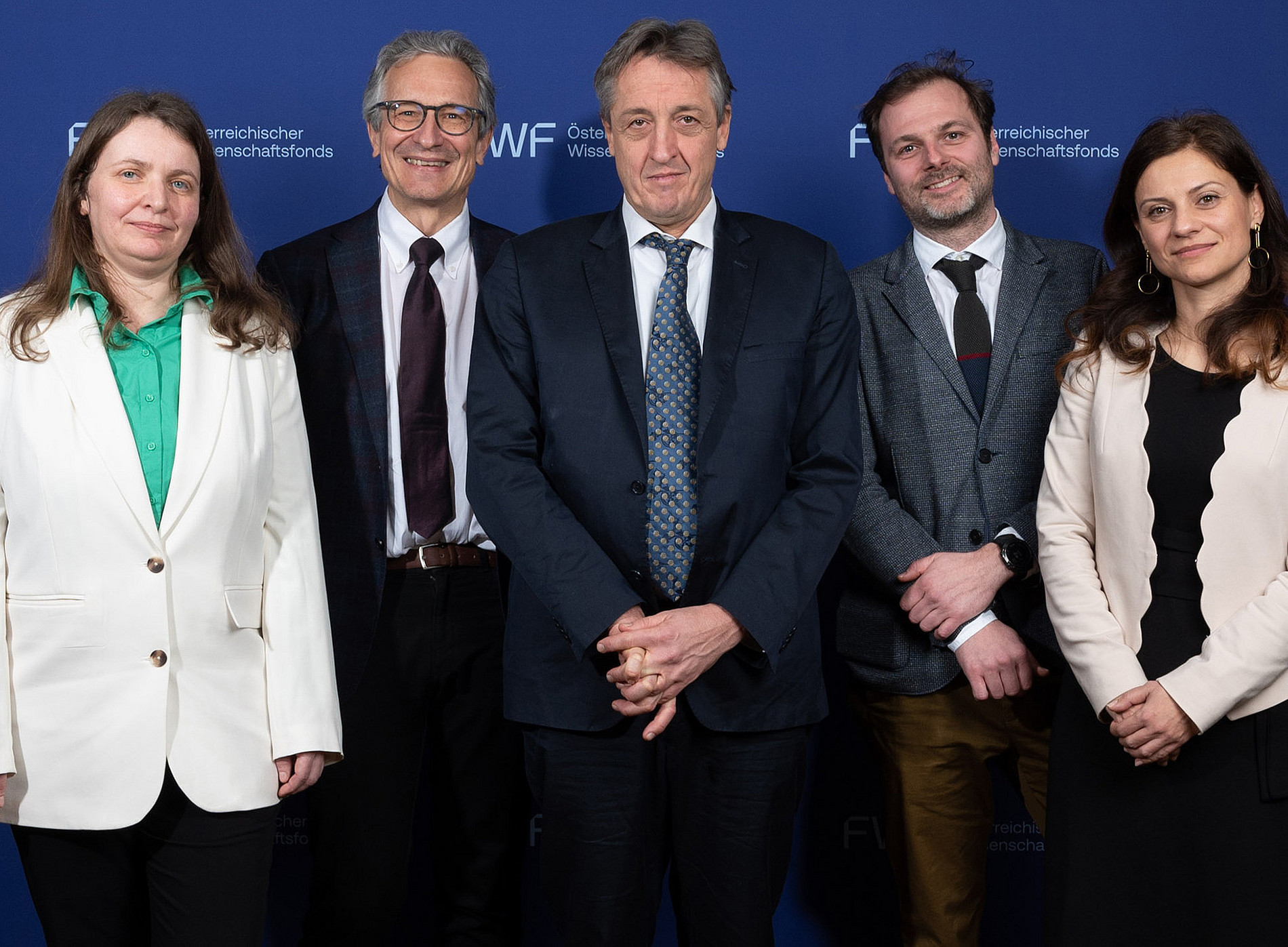"The FWF decision in favor of the 'MetAGE' Cluster of Excellence is an award for the outstanding research work, for the high scientific quality and especially for the many years of cooperation between the teams," says Peter Riedler, Rector of the University of Graz, delighted with the funding approval from Vienna. "The success proves us right, and I would like to thank the teams around Frank Madeo and all partners for their tireless efforts," says Riedler.
"The collaboration between scientists from the University of Graz, the Medical University of Vienna and the Medical University of Graz within the framework of 'MetAGE' underlines our joint commitment to the benefit of society. As Rector of the Medical University of Graz, I am particularly pleased that our university will contribute its expertise in the field of aging research and research into age-associated diseases to this project," emphasises Andrea Kurz, Rector of the Medical University of Graz.
Michaela Fritz, Vice Rector for Research and Innovation at the Medical University of Vienna, particularly emphasises the application-oriented aspect of "MetAGE". "I am convinced that this excellent consortium will succeed in improving our understanding of age-related diseases and applying these findings directly to patient care."
MetAGE: Metabolic control of aging and disease – from models to humans
The large-scale research project "MetAGE: Metabolic control of aging and disease – from models to humans" focuses on healthy aging. The aim is to better understand the age-related loss of metabolic control both in humans and in model organisms. The scientists are investigating how disturbances in metabolic control promote the risk of age-related diseases. At the same time, targeted nutritional interventions will be clinically tested. What is special about MetAGE is that the knowledge gained through basic research is transferred directly into clinical research. This strengthens the idea of prevention, so that a 'medicine of disease' becomes a 'medicine of health' in the future.
The Austrian Science Fund FWF announced on Monday that the "MetAGE" excellence application will be funded with around 18 million euros as a Cluster of Excellence. With an own contribution of around 12 million euros, a total volume of around 30 million euros will be invested in the "MetAGE" Cluster of Excellence over the next five years.
In order to develop sustainable solutions for the future, researchers at the University of Graz have been working together with partners on an interdisciplinary basis at the university and across institutions for many years. "Our researchers are highly motivated to expand cutting-edge research at our university in the essential topics of the future and to successively expand our collaborations. 'MetAGE' is proof of this," concludes Joachim Reidl, Vice-Rector for Research at the University of Graz.
Service:
Interactive map of the FWF excellentaustria.fwf.ac.at
University of Graz www.uni-graz.at
Medical University of Graz www.medunigraz.at
Medical University of Vienna www.meduniwien.ac.at/web/

